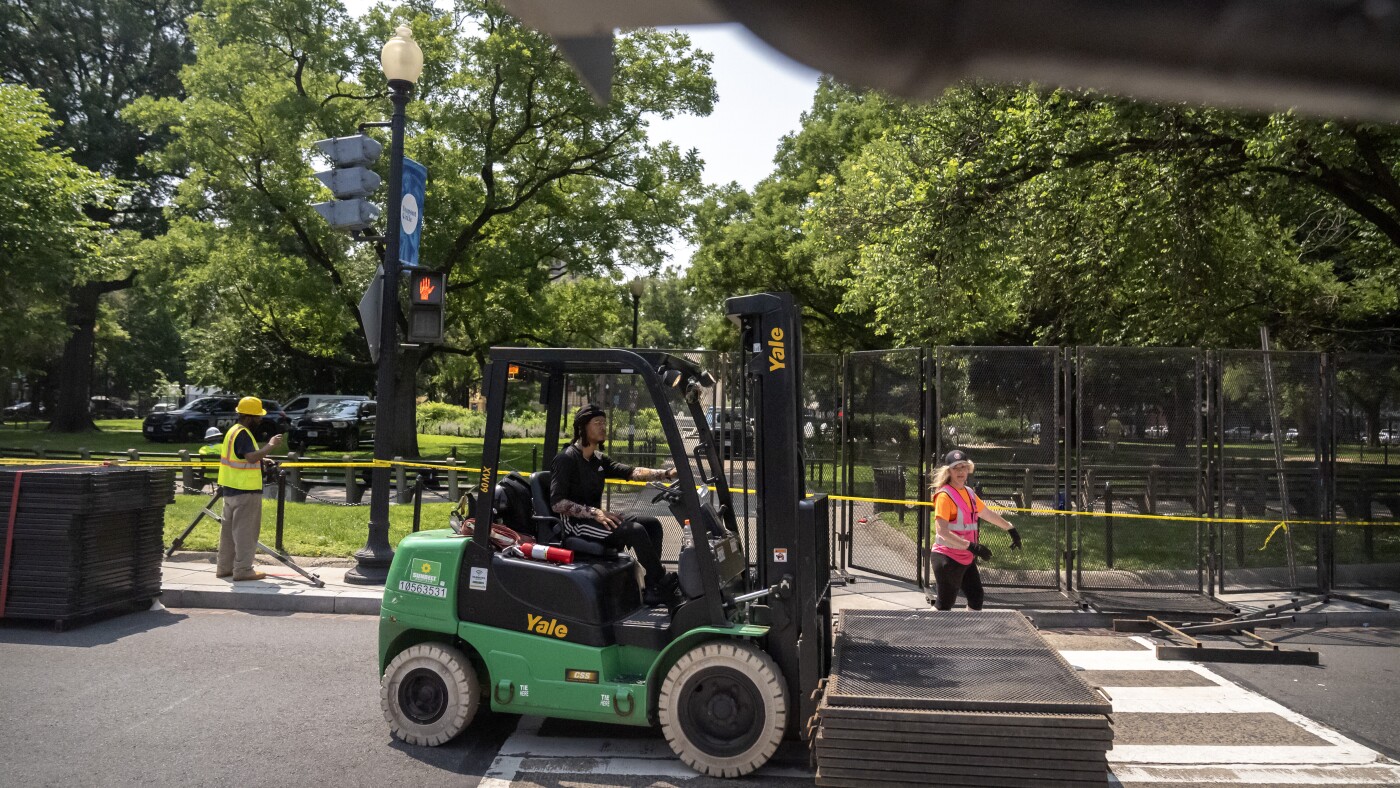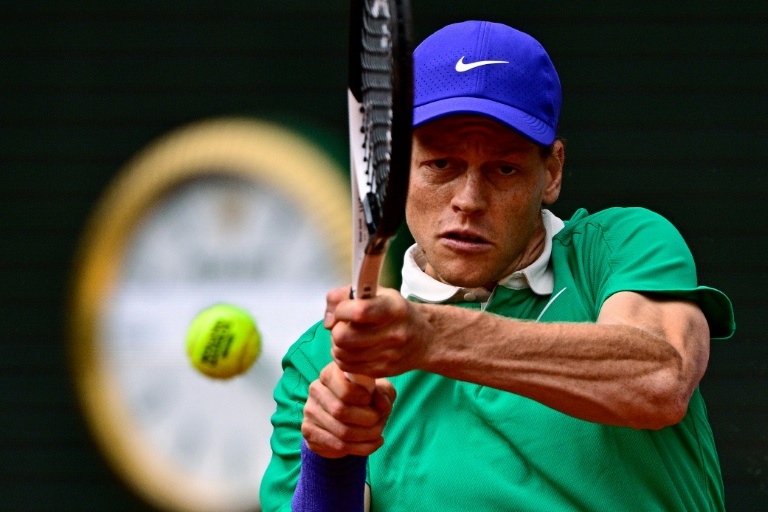AI In Warfare: Lessons From The Ukraine Conflict

Welcome to your ultimate source for breaking news, trending updates, and in-depth stories from around the world. Whether it's politics, technology, entertainment, sports, or lifestyle, we bring you real-time updates that keep you informed and ahead of the curve.
Our team works tirelessly to ensure you never miss a moment. From the latest developments in global events to the most talked-about topics on social media, our news platform is designed to deliver accurate and timely information, all in one place.
Stay in the know and join thousands of readers who trust us for reliable, up-to-date content. Explore our expertly curated articles and dive deeper into the stories that matter to you. Visit Best Website now and be part of the conversation. Don't miss out on the headlines that shape our world!
Table of Contents
AI in Warfare: Lessons from the Ukraine Conflict
The ongoing war in Ukraine has become an unexpected, albeit grim, proving ground for artificial intelligence (AI) in warfare. From drone swarms to battlefield surveillance, AI technologies are rapidly reshaping the landscape of modern conflict, offering both unprecedented advantages and raising significant ethical concerns. This article delves into the key lessons learned from the Ukrainian conflict, examining the deployment of AI, its impact on the battlefield, and the potential implications for future warfare.
The AI Arsenal: Applications on the Ukrainian Frontlines
The Ukraine conflict showcases a diverse range of AI applications, many of which are still under development but already demonstrating significant impact:
-
Drone Technology: AI-powered drones, both commercially available and purpose-built, have played a crucial role. AI enhances their autonomous capabilities, enabling tasks such as target identification, navigation, and even coordinated attacks. The use of affordable, readily available drones equipped with AI has dramatically altered the battlefield dynamics, leveling the playing field between larger and smaller militaries. Think of the widespread use of DJI drones, initially designed for civilian purposes, but now repurposed for reconnaissance and even offensive operations.
-
Intelligence, Surveillance, and Reconnaissance (ISR): AI algorithms analyze vast amounts of data from various sources – satellite imagery, social media, and battlefield sensors – to provide real-time intelligence. This significantly improves situational awareness and allows for more effective targeting and resource allocation. This capability has proven critical in countering Russian advances and identifying potential threats.
-
Cyber Warfare: While less visible, AI plays a crucial role in cyberattacks and defensive measures. AI-powered systems can detect and respond to cyber threats, analyze network traffic for malicious activity, and even launch sophisticated cyberattacks. The conflict has demonstrated the escalating importance of AI in the digital battlefield, a crucial aspect of modern warfare often overlooked in public discourse.
-
Autonomous Weapons Systems (AWS): Although not yet fully realized in Ukraine, the potential for AI-powered autonomous weapons systems (AWS) – weapons capable of selecting and engaging targets without human intervention – is a major concern arising from this conflict. The debate surrounding the ethical implications of AWS remains a central point of discussion amongst military strategists and ethicists alike.
Ethical Considerations and Future Implications
The use of AI in warfare raises complex ethical questions. Concerns include:
- Accountability: Determining responsibility for actions taken by autonomous AI systems in the event of civilian casualties or unintended consequences is a significant challenge.
- Bias and Discrimination: AI algorithms trained on biased data can perpetuate and amplify existing inequalities, potentially leading to discriminatory outcomes in warfare.
- Escalation of Conflict: The potential for AI-powered weapons to accelerate decision-making and reduce the human cost of conflict could paradoxically lead to greater escalation and increased casualties.
Looking Ahead: The Future of AI in Warfare
The Ukraine conflict offers valuable insights into the evolving role of AI in warfare. While the technology presents significant opportunities for improved efficiency and effectiveness, addressing the ethical challenges is paramount. International cooperation and the development of robust regulatory frameworks are crucial to prevent the misuse of AI and ensure its responsible application. Further research into AI safety and transparency is essential to navigate this rapidly changing landscape and mitigate potential risks. The future of warfare will undoubtedly be shaped by AI, and understanding the lessons learned from Ukraine is critical to shaping that future responsibly.
Call to Action: Engage in informed discussions about the ethical implications of AI in warfare and support initiatives promoting responsible AI development. The future of conflict depends on it.

Thank you for visiting our website, your trusted source for the latest updates and in-depth coverage on AI In Warfare: Lessons From The Ukraine Conflict. We're committed to keeping you informed with timely and accurate information to meet your curiosity and needs.
If you have any questions, suggestions, or feedback, we'd love to hear from you. Your insights are valuable to us and help us improve to serve you better. Feel free to reach out through our contact page.
Don't forget to bookmark our website and check back regularly for the latest headlines and trending topics. See you next time, and thank you for being part of our growing community!
Featured Posts
-
 D C Hosts First Ever World Pride A Look Back At The Weekend Parade
Jun 07, 2025
D C Hosts First Ever World Pride A Look Back At The Weekend Parade
Jun 07, 2025 -
 The Cavalry Aint Coming Friends Actor Issues Urgent Message Following Colorado Arson
Jun 07, 2025
The Cavalry Aint Coming Friends Actor Issues Urgent Message Following Colorado Arson
Jun 07, 2025 -
 Airline Faces Lawsuit Passenger Assaults Elderly Woman
Jun 07, 2025
Airline Faces Lawsuit Passenger Assaults Elderly Woman
Jun 07, 2025 -
 French Open 2024 Djokovic Vs Sinner Alcaraz Seeks Final Berth
Jun 07, 2025
French Open 2024 Djokovic Vs Sinner Alcaraz Seeks Final Berth
Jun 07, 2025 -
 Malta Court Convicts Men In Connection With Caruana Galizias Murder
Jun 07, 2025
Malta Court Convicts Men In Connection With Caruana Galizias Murder
Jun 07, 2025
